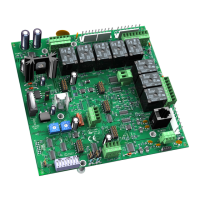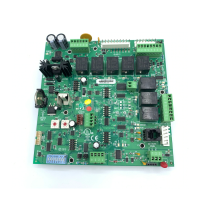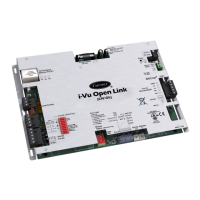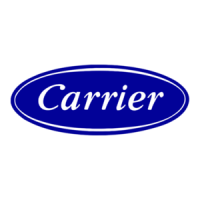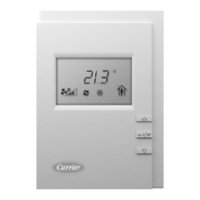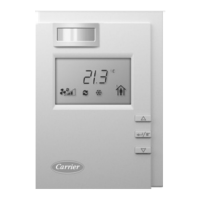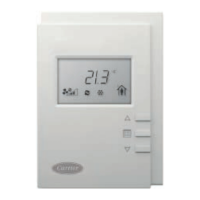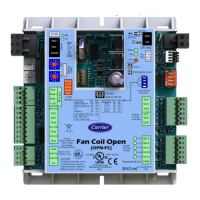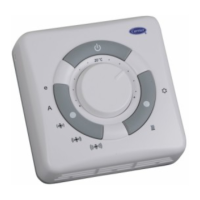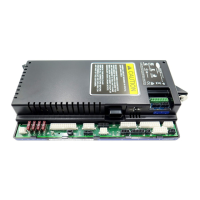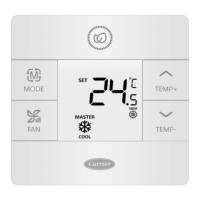Communications wiring
RTU Open v3 Carrier Proprietary and Confidential CARRIER CORPORATION ©2016
Integration Guide All rights reserved
16
When a new device is first commissioned onto the LonWorks network, the system integrator must upload the
device’s External Interface File (XIF) information. LonWorks uses the XIF to determine the points (network
variables) that are available from a device. The RTU Open has a set of predefined network variables. These
variables can be bound or accessed by the Network Management Tool.
The
feature of the Network Management Tool allows you to read real-time values from the RTU Open. The
Network Management Tool allows you to test integration prior to binding the controller's network variables to other
LonWorks nodes.
Troubleshooting LonWorks
Check the following to troubleshoot your RTU Open:
1 Verify that the BAS and controller are both set to speak the LonWorks protocol by theComm Selector DIP
switches
.
2 Verify that the BAS and the controller are both set for the same baud rate:
○ 38.4k for LonWorks
○ Baud rate DIP switches DS2 and DS1
○ Obtain a Modstat of the controller. Scroll to the bottom of the page to
to view
the active protocol and baud rate.
3 BAS must be reading or writing to the proper point addresses on the controller.
4 Verify that the Comm Option Port is enabled on the controller. The Comm Option Port setting must be set via
(switch
). It should be in the ON position to enable LonWorks communication.
5 Verify that controller has been properly commissioned onto the LonWorks network. See Commissioning the
controller for LonWorks communication (page 15).
6 Use the
feature of the network management tool to verify that you can communicate and get real-
time values from the controller before connecting the BAS.
7 Once you have confirmed communications with the controller using the network management tool, connect
the BAS.
8 Verify that the BAS is connected properly to the LonWorks Option Card's 2-wire TP/FT-10 Net port, which is
polarity insensitive. The BAS may have to configure jumper or DIP switches on their end to support TP/FT-10.
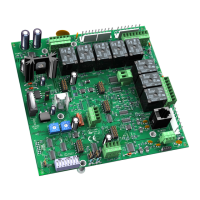
